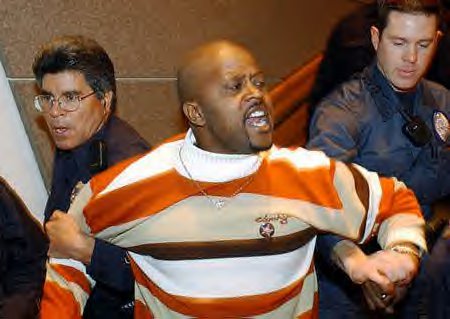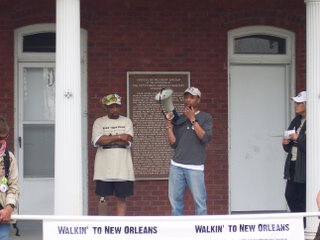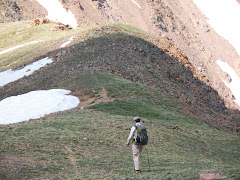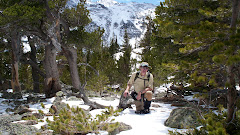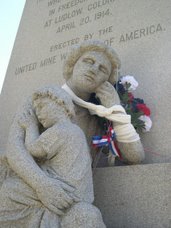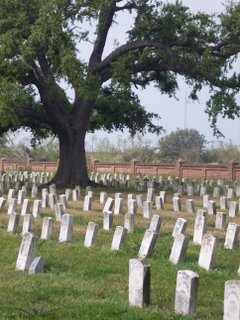
The Journey to Mobile, Alabama
On March 12, 2006 a group of four Iraq veterans, one combat veteran of Vietnam, one chaplain veteran of Vietnam and one Unitarian chaplain set out from Colorado Springs, Colorado for Mobile, Alabama to join the Walkin’ to New Orleans march. This was a march of Vietnam veterans, Iraq veterans, Gulf War veterans, military families, parents of children killed in Iraq and Afghanistan and Katrina survivors. It was organized to bring attention to the lack of response to Katrina survivors and other national priorities while billions were spent on killing and destruction in the Middle East.
We marched to connect the dots of what the war was costing our nation while these billions were funneled to fight an illegal and immoral war.
Before I can tell the story of our march from Mobile, there is an important story of our journey to Mobile that March 12, 2006. The story is important for the tragedy of the first day that tested our resolve to be in Mobile.
We left in two cars. The Iraq vets went together in a van and the older folks left in my car. We had decided on the southern route going down through Raton and then across West Texas to Dallas where we would stop for the night.
Things went well until we got past Amarillo, Texas. Around sunset the wind picked up and made for two hands on the wheel.
Shortly after sunset we saw a red glow on the horizon to our north. At first we figured it was a town but soon realized it was fire leaping at least twenty feet in height.
Shortly after seeing the fire, traffic stopped along Highway 287 leading out of Amarillo going south. Semis and cars packed the highway as we crept forward.
At one point I got out of the car to ask a trucker if he heard anything on his radio.
The trucker told me the highway patrol was diverting traffic from US 40 down to 287 because of the fires.
We actually got through the slowdown rather quick….nothing like I 70 on the weekend going back to Denver from the mountains. Police were directing traffic at major intersections allowing south bound traffic to merge with the 287 traffic.
After getting back up to speed I started noticing a huge fireball to the south of us in the direction the wind was coming from. We drove for another ten miles before there was another traffic slowdown.
We now had glowing skies to our north and our south. And we were stopped on the road with a wind blowing toward us from the area of the southern fire.
At the same time our older vet, the Vietnam chaplain, was telling us he was having some problems with his kidneys.
Now we had an older man with a history of multiple medical problems having troubles and fires on two sides along the highway.
Finally traffic started again. As we drove slowly along the next five miles we saw trees and ground smoldering from fresh fires. A whole fruit grove next to a ranch home was charred and smoking. The home had been spared. People were inside watching television.
The fires’ trail led right to the edge of the road. We drove forward wondering what lay ahead. Traffic picked up normal speed and we breathed a sigh of relief for just a moment.
Our chaplain companion was now in some distress. I knew we didn’t have long until we would have a serious problem with him. As the other chaplain drove I asked questions of our companion. Suddenly I was acting in the role of RN.
Clearly we would need to stop to see if the chaplain could get some relief at the nearest restroom.
We stopped but the chaplain was unsuccessful and in much more distress and pain. We continued to drive toward Wichita Falls, Texas on Highway 287. I had decided if we couldn’t get the chaplain some relief by Wichita Falls we’d need to seriously consider an ER visit.
Meanwhile directly in front of us another red glow emerged on the horizon. It was bigger than all the others and we seemed to be driving right toward it. There was some discussion of diverting to another highway but it seemed better to stay on 287 since there wasn’t a roadblock or police in sight.
After a few more miles the road did turn to the north and away from the fires. We now had to focus on our companion who told me he felt sweaty and had some pain in his groin area.
As we approached Wichita Falls, I received a call on my cell from the driver of the van with the Iraq vets. The driver told me there was a large “roadkill” ahead in the left lane. I was told to avoid the activity of stopped cars in the right lane but not to swerve into the left lane.
Then in nervous voice the driver told me the “guys are telling me I ran over a human body” but didn’t believe that to be the case.
As we came upon the scene the van driver warned me about, traffic was being diverted to the frontage road off the highway. I told my companions we’d know if the “roadkill” had been a person if we saw an ambulance.
Almost immediately we did see an ambulance with lights flashing. The scene reminded me of a David Lynch movie.
Police were walking along the edge of the highway with flashlights shining down into the sloped shoulder and gully below. A young man was standing handcuffed with arms in back of him. The emergency lights created an eerie strobe effect as we slowly passed by and reentered the highway a mile past the scene.
We all knew the “roadkill” had been human by this time. Our Unitarian chaplain wondered if we should describe the scene to the driver of the van because all the vets were already dealing with PTSD following their war experience.
I was initially for not saying anything but the chaplain brought up the valid issue of a police report.
We called the van and asked their location. They were only a few exits ahead of us stopped at a truck stop for food and gas. We asked that they wait for us.
Three of the vets were outside smoking when we pulled up. The driver was inside sitting at a table next to the window. Our older chaplain was still deteriorating in his medical condition. He hurriedly went toward the restroom.
The driver now realized the “roadkill” had been human body parts. Later the driver told the chaplain they had all clearly seen the gruesome sight of body parts in the road. The driver said it was incomprehensible this had happened and they were in denial at first when they called me on my cell to warn me.
All the other vets had told the driver to “keep going, don’t stop”. An Iraq war response to an American highway event. The chaplain encouraged the driver to contact police to help with putting some closure on the incident. The driver preferred not to do this.
Meanwhile our other chaplain companion remained in distress. I told him we needed to take him to the ER immediately. He agreed.
We got directions to the nearest hospital. We spent three hours waiting while our companion was examined and treated. Finally he was released but he agreed he needed to return to Colorado Spring as soon as possible.
We drove into Dallas and secured rooms at 330 a.m... The Iraq vets had gotten there at midnight.
Later that morning our older chaplain companion made arrangements to fly to Colorado Springs. The rest of us packed up and continued on the way to Mobile. The Iraq vets left an hour ahead of the Unitarian chaplain and me.
The second day of the journey was without problem. We arrived in Mobile around 8 p.m. that evening. We came together with other participants at the Save Our Selves’ warehouse. Approximately fifty others had gathered at that time.
We were fed our first meal of the journey to New Orleans. Chicken. A staple of the region we found out.
The horror of the first day still lingers with me. I fear for the Iraq vets. What awful fate they of all the cars would happen upon such a horrific thing. They, who had just gone through such trauma, were once again painted with death and horror.
I found out when doing an internet search a 47 year old transient Mexican man had stepped out into a traffic lane on 287 near Wichita Falls. He had been hit by a woman driving alone. That was followed by a semi and two other vehicles. The police were quoted as saying no charges were likely to be filed.
I wrote an email to a friend describing this scene and talked about the horror of it from the perspective of the veterans. I realized later I failed to think of the other drivers and of the transient who died, his body parts scattered all along the highway.
I also discovered seven people had died in the fires we drove through. Almost at the same time we were nearby driving through.
Fate, karma, whatever it is plays no favorites. Death is indiscriminate and haphazard in its choices. Veterans come to realize that after combat. They question constantly why they weren’t killed and why friends and decent people died.
So often I see and hear people thinking they can forestall death somehow. I never have the heart to tell them death is a random event that each of us will face and none of us control.
As we walked through the area Hurricane Katrina had hit we would hear that over and over from the survivors. Death plays no favorites and can come without warning at any time.
Terry Leichner, RN


